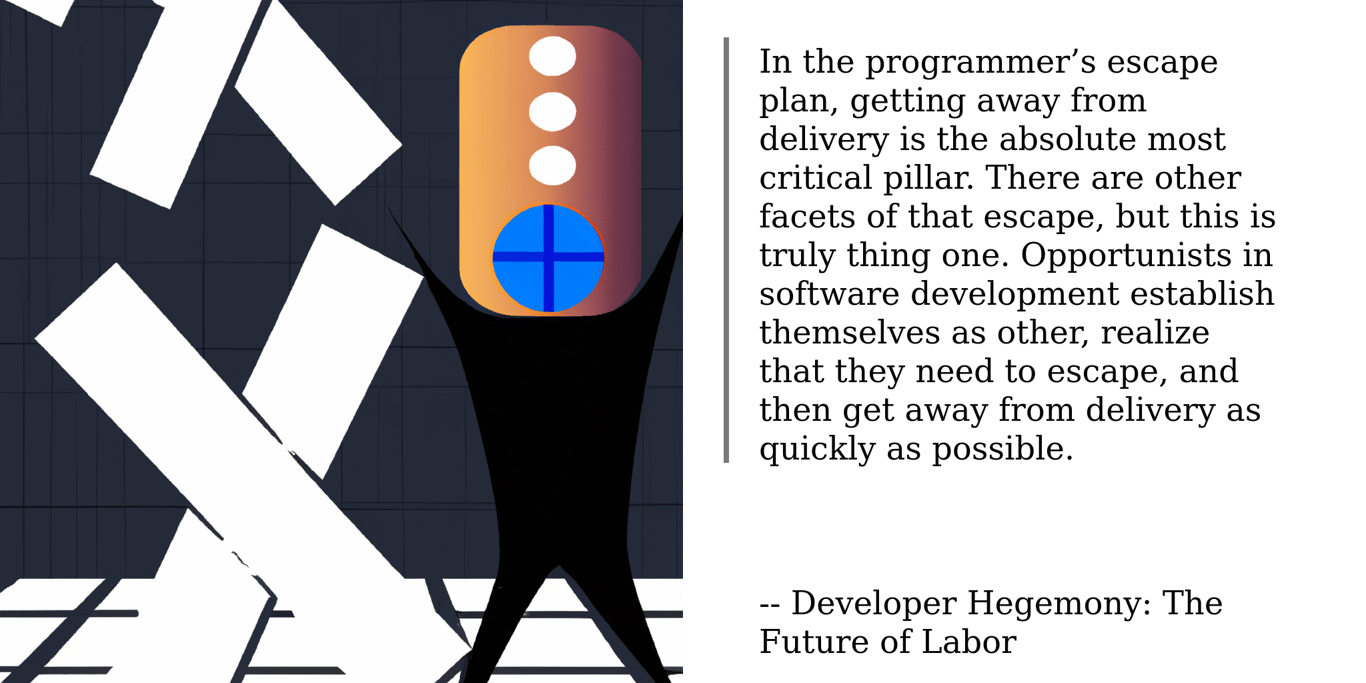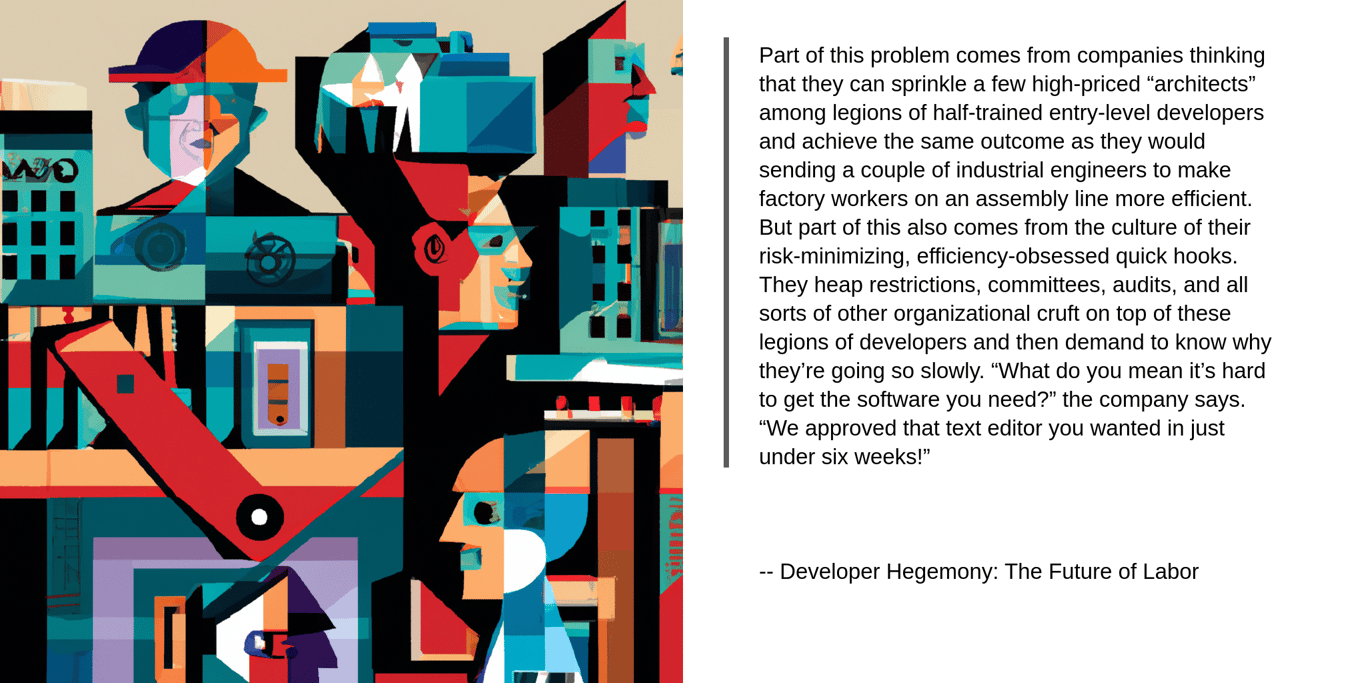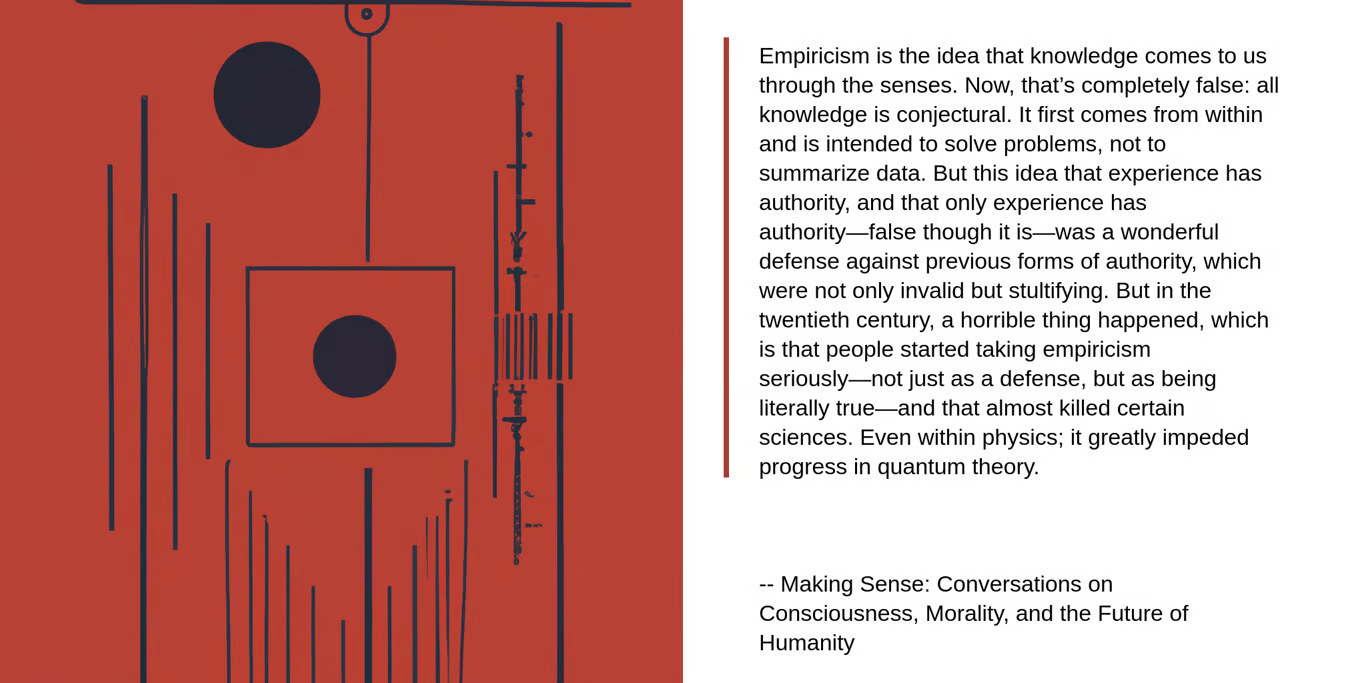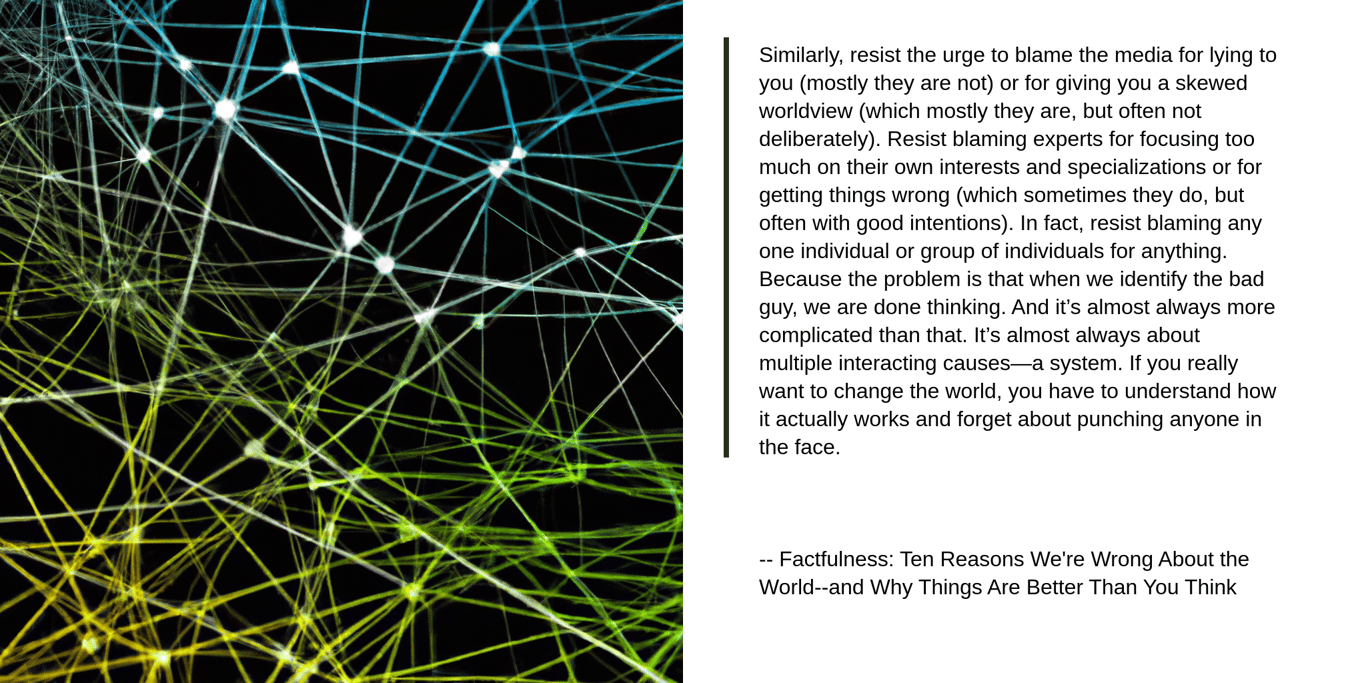September 23 2022
stop delivering, if you want to make money, anyway

The products weren’t the only thing on sale; so too was a lifestyle.
0:00
/0:43

In the programmer’s escape plan, getting away from delivery is the absolute most critical pillar. There are other facets of that escape, but this is truly thing one. Opportunists in software development establish themselves as other, realize that they need to escape, and then get away from delivery as quickly as possible.
-- Developer Hegemony: The Future of Labor (affiliate link)

Part of this problem comes from companies thinking that they can sprinkle a few high-priced “architects” among legions of half-trained entry-level developers and achieve the same outcome as they would sending a couple of industrial engineers to make factory workers on an assembly line more efficient. But part of this also comes from the culture of their risk-minimizing, efficiency-obsessed quick hooks. They heap restrictions, committees, audits, and all sorts of other organizational cruft on top of these legions of developers and then demand to know why they’re going so slowly. “What do you mean it’s hard to get the software you need?” the company says. “We approved that text editor you wanted in just under six weeks!”
-- Developer Hegemony: The Future of Labor (affiliate link)

Empiricism is the idea that knowledge comes to us through the senses. Now, that’s completely false: all knowledge is conjectural. It first comes from within and is intended to solve problems, not to summarize data. But this idea that experience has authority, and that only experience has authority—false though it is—was a wonderful defense against previous forms of authority, which were not only invalid but stultifying. But in the twentieth century, a horrible thing happened, which is that people started taking empiricism seriously—not just as a defense, but as being literally true—and that almost killed certain sciences. Even within physics; it greatly impeded progress in quantum theory.
-- Making Sense: Conversations on Consciousness, Morality, and the Future of Humanity (affiliate link)

Instrumentalism, even aside from the philosophical enormity of reducing science to a collection of statements about human experiences, does not make sense in its own terms. For there is no such thing as a purely predictive, explanationless theory. One cannot make even the simplest prediction without invoking quite a sophisticated explanatory framework.
-- The Beginning of Infinity: Explanations That Transform the World (affiliate link)

Similarly, resist the urge to blame the media for lying to you (mostly they are not) or for giving you a skewed worldview (which mostly they are, but often not deliberately). Resist blaming experts for focusing too much on their own interests and specializations or for getting things wrong (which sometimes they do, but often with good intentions). In fact, resist blaming any one individual or group of individuals for anything. Because the problem is that when we identify the bad guy, we are done thinking. And it’s almost always more complicated than that. It’s almost always about multiple interacting causes—a system. If you really want to change the world, you have to understand how it actually works and forget about punching anyone in the face.

At some level we understand that the world is complicated, and that everything is somehow connected to everything else. But when we read some story about reforming the healthcare system, or about banker bonuses, or about the Israel-Palestine conflict, we don’t try to understand how all these different problems fit together. We just focus on the one little piece of the huge underlying tapestry of the world that’s being presented to us at that moment, and form our opinion accordingly. In this way, we can flip through the newspaper while drinking our morning cup of coffee and develop twenty different opinions about twenty different topics without breaking a sweat. It’s all just common sense.
-- Everything Is Obvious: *Once You Know the Answer (affiliate link)




